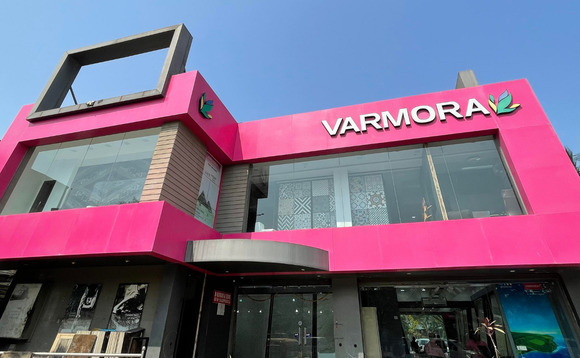
Deal focus: Carlyle targets consumerism in ceramics

The Carlyle Group, like many investors, sees premiumisation as a natural outcome of the expansion of India’s middle class. It could be the first to test this thesis in the local building materials industry
The homebuilding materials market in India is tilted 60-40 in favour of consumer retail over sales to construction companies. Families and individuals pour their life savings into an emotional, one-shot investment with support from a contractor or architect. Quality – and therefore branding – counts for a lot.
The phenomenon is especially pronounced in rural areas and lower-tier cites, where brands of cement, paint, and piping are as well recognised by the general public as any other discretionary consumer item. The brands themselves are not yet nationwide, however, in part because they have not yet had time to scale.
This is true in modern flooring as well. As recently as a decade ago, most new houses in the country still had mud or concrete floors. A handful of branded ceramic tile makers have emerged, but despite growing at double-digit rates in recent years, none of them have cracked 10% market share nationally.
The Carlyle Group has been watching this unfold carefully. Its due diligence found that two-thirds of construction material customers already had a brand in mind when they visited a store. About 50% of India's USD 5bn tiles and bathware market is now branded, versus 25% in the early 2000s.
"Thematically, we're looking at categories with large domestic consumption, where the players today are largely local, undifferentiated, unbranded, and unorganised," said Amit Jain, co-head of India at Carlyle.
"As the spending capacity grows in India, markets will likely shift from unorganised to organised players. In that context, we believe our capital and management's prowess can drive industry consolidation to create large differentiated branded players."
Carlyle's survey work in tiles and bathware indicated that more than 95% of customers would recommend products from a branded supplier called Varmora Granito – the best result in the industry. Last week, the private equity firm took an approximately 35% stake in the company via its sixth regional growth vehicle for a reported USD 90-USD 95m.
Varmora's business is about 80% flooring and wall tiling versus 20% fixtures such as sinks and faucets. It distributes largely in lower-tier cities through both multi-brand outlets and own-branded stores.
The own-branded stores are 5,000-square-foot experience centres with room displays and digital functions for experimenting with customisation. Varmora has more than 200 such locations. Only one other tile company in the country is believed to have achieved a comparable footprint.
Carlyle also saw differentiation in product quality. Varmora was found to place a relatively strong emphasis on tiles that are precisely uniform in shape (known in the industry as "rectified" tiles) in addition to providing more finishing and embossing customisation options.
Meanwhile, the leadership team was considered well aligned in terms of go-to-market strategy. "India is a lot about execution," Jain said. "There are a lot of white spaces that look real on PowerPoint charts and ideally growth should happen, but often it does not due to poor execution. So, you have to partner with A-teams."
Value-add plans include an advertising campaign to support expansion of the store portfolio. In addition, Carlyle will pursue portfolio synergies with the likes of Spain-based Altadia, a global leader in tile colours and glazes that was acquired from Lone Star Funds late last year. There is an expectation the company could help Varmora introduce industry innovations to India.
M&A is core to the agenda as well. Target companies would have complementary product expertise or stronger traction in an underpenetrated part of the country. There is no specific plan to turn Varmora into a multi-brand company, but it's not out of the question.
"We're already spending time on [acquisitions]," Jain said. "The shift by consumers from undifferentiated to customised branded products creates consolidation opportunities. That's happened in many discretionary spend categories in India such as food and beverage – and I do believe it will happen in building materials."
Latest News
Asian GPs slow implementation of ESG policies - survey
Asia-based private equity firms are assigning more dedicated resources to environment, social, and governance (ESG) programmes, but policy changes have slowed in the past 12 months, in part due to concerns raised internally and by LPs, according to a...
Singapore fintech start-up LXA gets $10m seed round
New Enterprise Associates (NEA) has led a USD 10m seed round for Singapore’s LXA, a financial technology start-up launched by a former Asia senior executive at The Blackstone Group.
India's InCred announces $60m round, claims unicorn status
Indian non-bank lender InCred Financial Services said it has received INR 5bn (USD 60m) at a valuation of at least USD 1bn from unnamed investors including “a global private equity fund.”
Insight leads $50m round for Australia's Roller
Insight Partners has led a USD 50m round for Australia’s Roller, a venue management software provider specializing in family fun parks.







